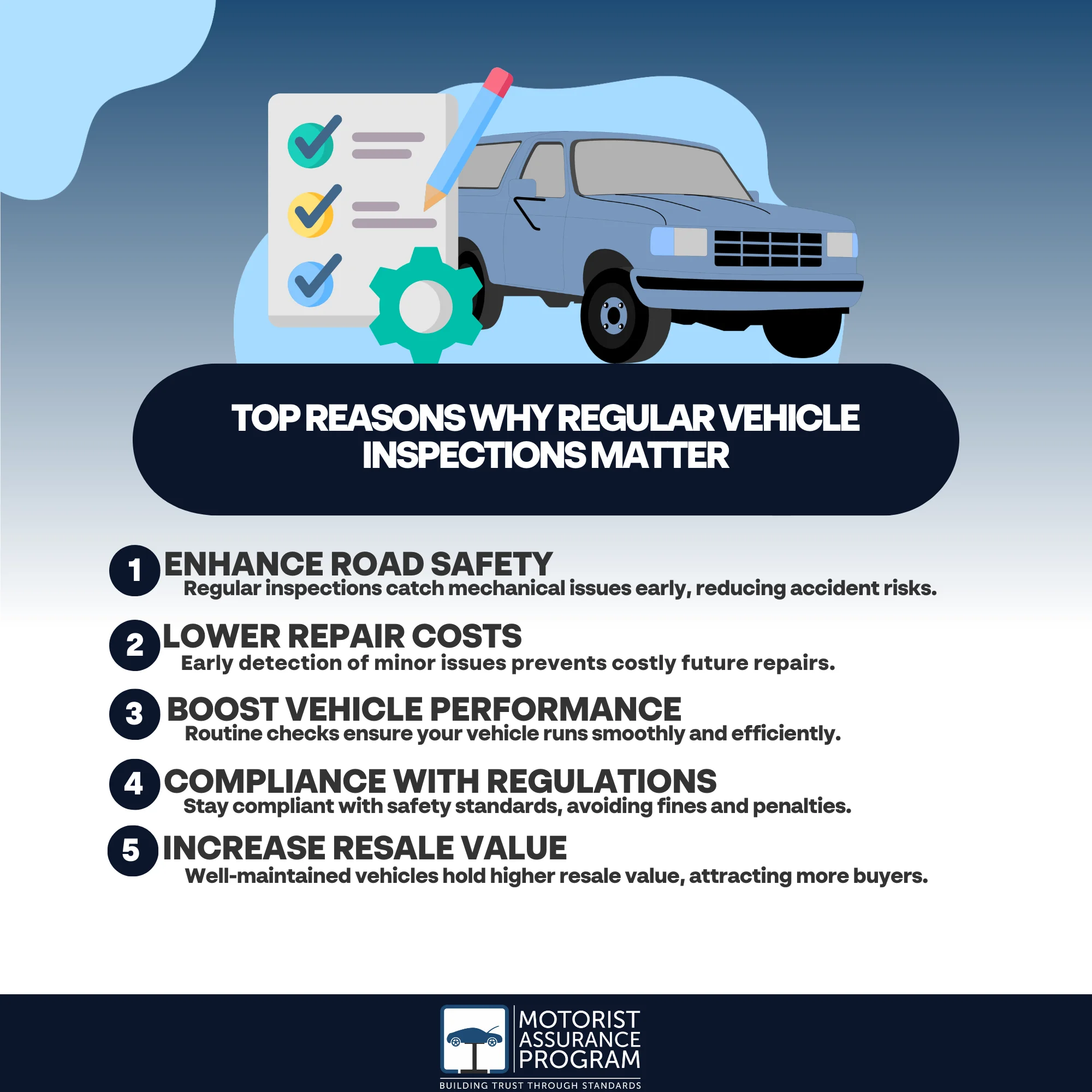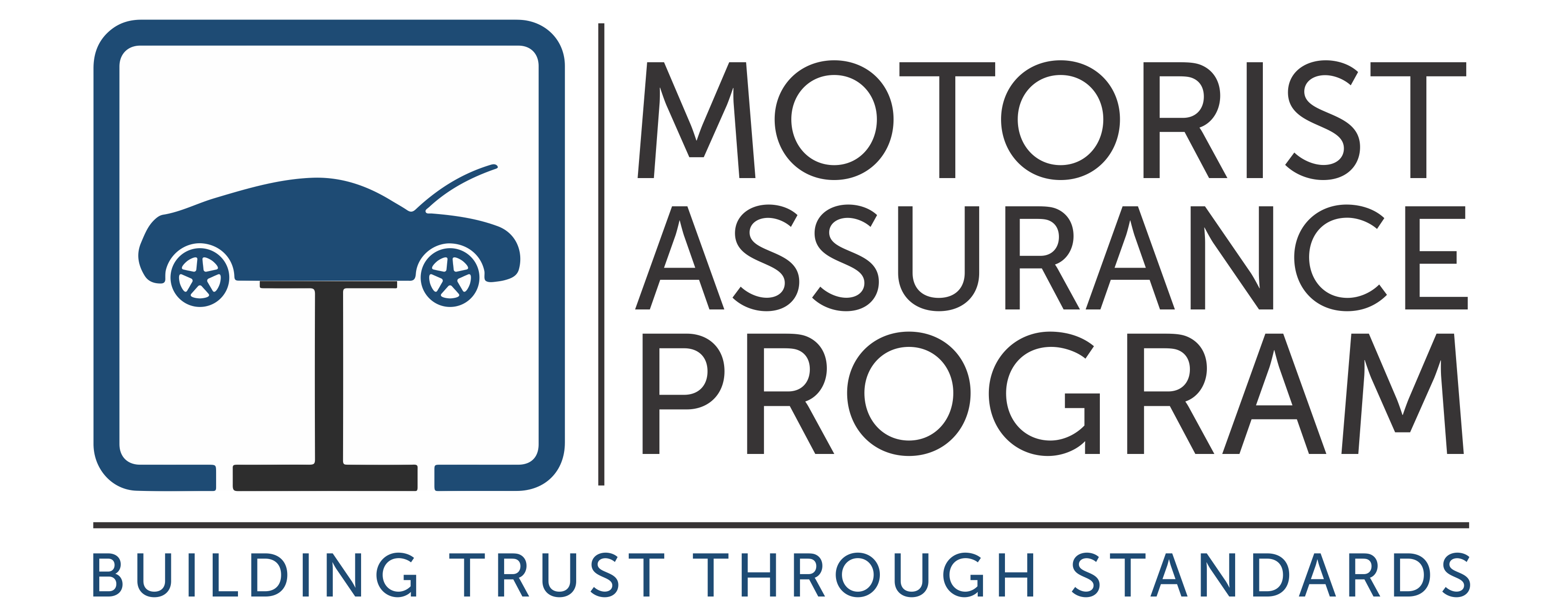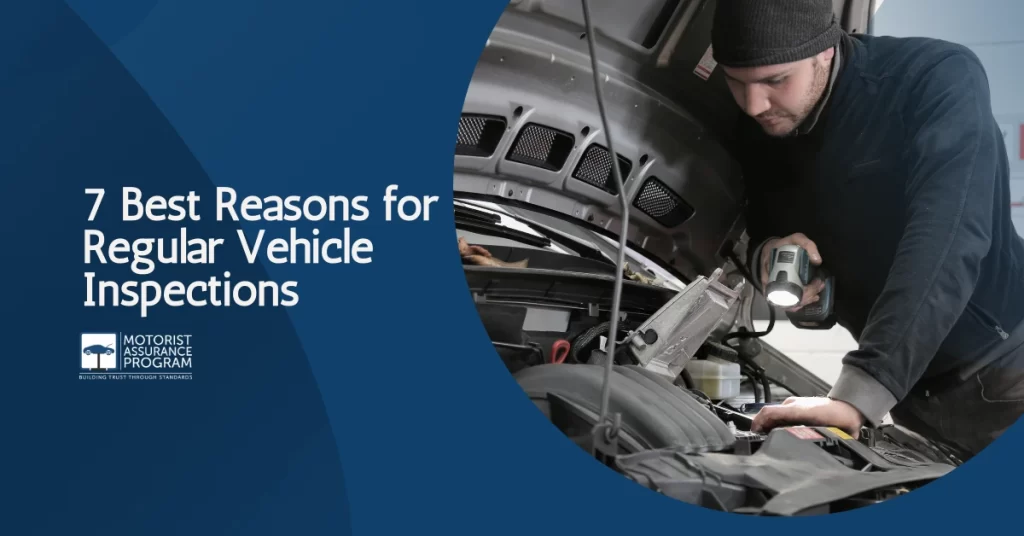Regular vehicle inspections are essential for your safety and your car’s longevity. They enhance road safety by catching mechanical problems early, which can prevent accidents. Inspections also guarantee compliance with legal regulations, improving your peace of mind. By identifying potential issues before they escalate, you can greatly reduce repair costs over time. Routine checks also boost your vehicle’s performance and longevity, helping it run efficiently. A well-maintained vehicle has a higher resale value, providing you with better returns. Stay proactive about your car’s health, and you’ll discover even more benefits to regular inspections.

Key Takeaways
-
Regular vehicle inspections enhance road safety by detecting mechanical issues before they lead to accidents, ensuring drivers, cyclists, and pedestrians are protected.
-
Early identification of potential problems during inspections prevents minor issues from escalating into costly repairs, prolonging vehicle life.
-
Inspections ensure compliance with legal regulations, helping avoid fines and ensuring that vehicles meet safety standards.
-
Consistent inspections improve vehicle performance, optimizing fuel efficiency and enhancing overall driving experience.
-
Well-maintained vehicles boost resale value, attracting buyers with a detailed service history and demonstrating reliability.
Enhances Safety on the Road
Enhancing safety on the road begins with regular vehicle inspections. When you prioritize these checks, you’re not just maintaining your vehicle; you’re actively contributing to a safer driving environment for yourself and others.
Regular inspections help guarantee your vehicle is in peak condition to handle various road conditions, detecting mechanical issues before they lead to accidents. Whether it’s rain, snow, or rough pavement, a well-maintained vehicle performs better, reducing the risk of accidents.
Vehicle inspections and maintenance play a pivotal role in enhancing visibility for cyclists and pedestrians, promoting responsible driving practices.
Driver awareness also plays a significant role in road safety, and knowing your vehicle is in top shape boosts your confidence behind the wheel.
Identifies Potential Issues Early
While you may not think about it often, regular vehicle inspections can identify potential issues before they escalate into serious problems. By scheduling these inspections, you’re allowing trained professionals to perform mechanical diagnostics that reveal hidden concerns. This early intervention is essential for maintaining your vehicle’s longevity and performance, as recommended in your vehicle’s scheduled maintenance and owner’s manual.
It’s easy to overlook the importance of vehicle maintenance, but think of it as an investment in your safety and your vehicle’s health. By addressing minor issues today, you’re preventing them from becoming major headaches tomorrow.
Ensures Compliance With Regulations
When you get your vehicle inspected, you’re not just keeping it running smoothly; you’re also making sure it meets all legal requirements.
Regular inspections can help identify potential issues before they become major problems, which is especially important for electric and hybrid vehicles that have unique maintenance needs.
Understanding the safety standards and regulations can help you avoid penalties and fines, which can be a real hassle.
Legal Requirements Overview
Understanding the legal requirements for vehicle inspections is vital for every vehicle owner. Each state has its own regulations regarding vehicle inspections, which can vary considerably. Familiarizing yourself with these state regulations is essential to guarantee that you remain compliant and avoid potential fines or penalties.
Most states specify an inspection frequency, often requiring checks annually or biennially. These inspections typically evaluate your vehicle’s emissions, safety features, and overall condition. Staying on top of these requirements not only keeps you within the law but also helps maintain your vehicle’s performance and safety.
Neglecting inspections can lead to serious consequences, including unexpected breakdowns or accidents. It’s empowering to know that by adhering to these regulations, you’re taking proactive steps to confirm your vehicle is safe for you and your passengers.
Safety Standards Enforcement
Guaranteeing safety on the roads hinges on effective safety standards enforcement. Regular vehicle inspections play an essential role in this process, helping you adhere to safety regulations that protect both you and fellow drivers.
These inspections identify potential issues before they become serious problems, allowing you to address them promptly. They make sure that safety features, like brakes and lights, are functioning at their best, thereby reducing the risk of accidents.
The enforcement of safety standards also helps maintain a level playing field among all drivers. When everyone follows the same regulations, it contributes to safer roadways, creating a community that values safety.
By taking responsibility for your vehicle’s maintenance and understanding the importance of compliance, you empower yourself to make informed decisions.
Avoiding Penalties and Fines
Avoiding penalties and fines iscrucial for every driver who wants to stay on the right side of the law. Regular vehicle inspections not only guarantee your car is safe and roadworthy but also help you achieve penalty avoidance.
By keeping up with inspections, you demonstrate compliance with local regulations, which can prevent costly fines that arise from neglecting your vehicle’s condition.
Many jurisdictions impose hefty penalties for vehicles that fail to meet safety standards or emissions regulations. By addressing any potential issues early on, you reduce the risk of being ticketed or facing fines that could strain your budget.
Staying compliant with inspection requirements often leads to a smoother driving experience. You won’t have to worry about unexpected breakdowns or legal troubles, allowing you to focus on what truly matters—enjoying the journey.
Improves Vehicle Performance
Regular vehicle inspections greatly improve your car’s performance. By routinely checking key components, you guarantee everything runs smoothly, which can lead to significant fuel efficiency.
When your engine is optimized, it operates at peak performance, reducing the workload on various parts and enhancing overall drivability improvements. This means you’ll enjoy a smoother ride and better handling, making every trip more enjoyable.
Performance tuning becomes more effective with regular inspections. By identifying and addressing minor issues before they escalate, you maintain your vehicle’s responsiveness and agility.
Reduces Long-Term Repair Costs
Regular vehicle inspections can catch problems early, saving you from costly repairs down the road. By prioritizing preventative maintenance, you not only enhance your vehicle’s longevity but also keep your wallet happy.
Early Problem Detection
Often, early problem detection during vehicle inspections can save you significant money in the long run. When you stay proactive, you can catch issues before they escalate into costly repairs.
Regular engine diagnostics help identify potential failures, while fluid checks guarantee your vehicle runs smoothly. Tire inspections can reveal uneven wear, indicating alignment checks are necessary, which prevents further tire damage and enhances safety.
Brake assessments are critical too; worn brakes can lead to more severe damage if not addressed promptly. Exhaust evaluations can uncover leaks that might affect performance and emissions, impacting both your wallet and the environment.
Don’t forget about battery tests—if your battery’s on its last legs, you’ll want to replace it before it leaves you stranded.
Suspension reviews can expose problems that compromise handling and comfort, making your driving experience less enjoyable.
Preventative Maintenance Benefits
Maintaining your vehicle through preventative measures can considerably reduce long-term repair costs. Regularly getting oil changes, tire rotations, and brake checks not only keeps your vehicle running smoothly but also prevents small issues from escalating into expensive repairs.
By monitoring your fluid levels, you can avoid serious engine damage that might result from neglect. Battery maintenance, filter replacements, and alignment adjustments play vital roles in your vehicle’s health, too.
Don’t overlook components like spark plugs and the exhaust system. Replacing spark plugs at the recommended intervals can improve fuel efficiency and reduce emissions. Regular inspections of your exhaust system help prevent costly fixes down the road.
Lastly, don’t forget your wiper blades; they’re critical for visibility and safety.
Increases Vehicle Lifespan
Regular vehicle inspections can greatly increase your vehicle’s lifespan by identifying potential issues before they escalate into costly repairs.
Routine inspections help guarantee that your tire condition is ideal, which not only enhances safety but also prolongs tire life.
Brake performance is vital for your safety, and regular checks can spot any necessary adjustments early. You should also pay attention to battery health; a weak battery can lead to unexpected breakdowns.
An examination of the exhaust system can prevent costly emissions repairs, while addressing suspension issues improves ride quality and handling.
Alignment checks are important to prevent uneven tire wear, and filter replacements help maintain engine efficiency.
Finally, overall cleanliness not only keeps your vehicle looking good but also protects against rust and corrosion.
Boosts Resale Value
A well-maintained vehicle can greatly boost your resale value, making it more appealing to potential buyers. When you keep up with regular inspections, you’re not just ensuring your car runs smoothly; you’re also enhancing its market demand. Buyers are often willing to pay more for a vehicle that shows signs of proper care and maintenance.
Investing in cost-effective upgrades, like new tires or a fresh paint job, can markedly increase your car’s worth. These improvements demonstrate that you’ve taken the time to invest in your vehicle, making it stand out in a competitive market.
Maintaining a detailed service history could also instill confidence in potential buyers. They’ll see that you’ve been proactive about your vehicle’s health, which can alleviate concerns about hidden problems.
In a crowded marketplace, being able to showcase your commitment to upkeep can be the difference between a quick sale and a prolonged listing. So, prioritize regular inspections and maintenance; it’s a smart strategy that pays off when it’s time to sell.
Frequently Asked Questions
How Often Should I Schedule a Vehicle Inspection?
You should schedule a vehicle inspection based on the manufacturer’s recommendations, typically every 6 to 12 months. Regular checks maintain your car’s safety and performance, so keep a maintenance checklist handy to track inspection frequency.
What Is Included in a Typical Vehicle Inspection?
A typical vehicle inspection includes safety checks like brakes, lights, and tires. You’ll also get maintenance tips for oil changes and fluid levels, ensuring your car runs smoothly and safely on the road.
Can I Perform My Own Vehicle Inspection?
Yes, you can perform your own vehicle inspection using DIY inspections. Just make sure you have the right inspection tools on hand. Regular checks help maintain your vehicle’s performance and safety, so don’t skip them!
What Happens if My Vehicle Fails Inspection?
If your vehicle fails inspection, you’ll face inspection consequences like fines or registration issues. You’ll need to explore repair options, ensuring your vehicle meets safety and emissions standards before you can pass the next inspection.
Are Inspections Required for All Vehicle Types?
Yes, inspections are required for most vehicle types, but regulations vary by state. You need to check local laws to guarantee your vehicle meets safety standards and complies with inspection regulations for maximum safety.
Conclusion
Regular vehicle inspections are like a routine check-up for your car, ensuring it stays in top shape and keeps you safe on the road. By staying proactive, you can catch potential issues before they turn into costly repairs, comply with regulations, and enhance your vehicle’s performance. Plus, taking care of your car can greatly boost its resale value and extend its lifespan. So, make inspections a priority—your vehicle, and your peace of mind, will thank you!


